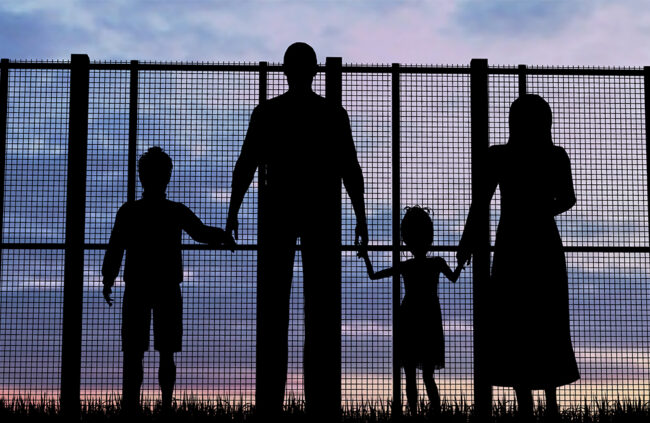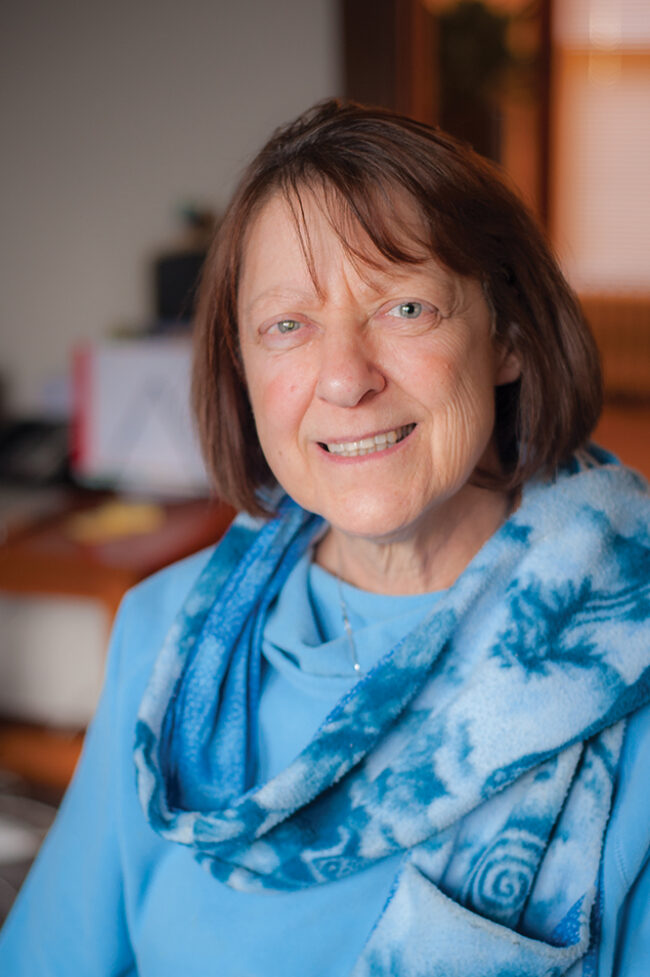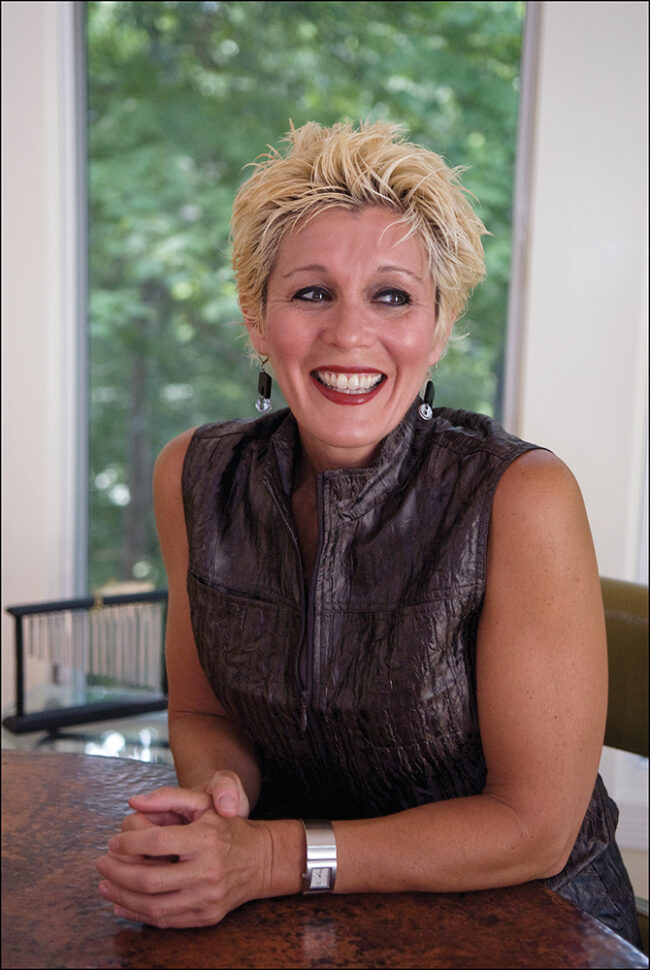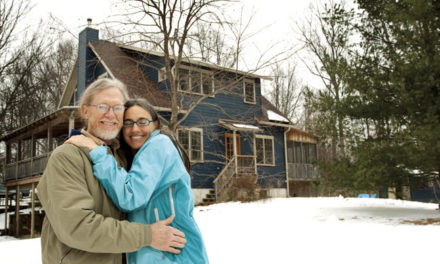
by PETER DORFMAN
Hoosiers living through the coronavirus crisis have experienced a range of hardships and inconveniences. But those issues pale in comparison to the problems faced by Bloomington’s immigrant community, especially those who have come here as refugees or asylum seekers.
Immigrants from East Africa, Syria, Central America, Venezuela, Western China, and other troubled regions have found their way to Bloomington in recent years. They are in the U.S. legally, but they keep a low profile, working low-wage jobs and waiting for their asylum applications to work their way through the immigration bureaucracy. Often the family is split—between the U.S. and their home country or between Bloomington and detention camps in the U.S.

The Bloomington Refugee Support Network, an all-volunteer nonprofit established in 2016, has thus far assisted 54 such immigrant families in Monroe County. “Most clients we serve are suffering some level of PTSD,” says founder Diane Legomsky. “Most have lost their jobs because of the COVID-19 crisis. Their ability to pay rent is in jeopardy. These practical problems are triggering their PTSD [post-traumatic stress disorder].”
Much of what the BRSN provides is practical and financial help. But just as urgently, these families need emotional support. Through a new program called “Special Friends,” BRSN hopes to “complete the circle of care,” helping asylum-seekers to feel they have not only support, but also a foothold in the community.
“We offer funding for attorneys and application fees, food, rent, utilities, child care, and computers,” Legomsky explains. “We provide access to resource agencies, medical and mental health services, interpreters, rides to Indianapolis and Chicago for interviews and hearings, and ESL/ENL classes. What we want to offer now are friends willing to form a bond with the family. So when an immigrant family comes to Bloomington, they’ll find they actually have a welcoming community and friends to visit.”
Special Friends is the brainchild of Sylvia McNair, a Grammy Award-winning classical vocalist who has lived in Bloomington since 2006, and who is a board member of BRSN. “Our Special Friends volunteers are not expected to provide financial support,” McNair explains. “They’re just there to share a meal, have a conversation, and just share our community.”
A primary focus of the Special Friends program is assimilation. The Friend might invite the family for meals or special occasions (Christmas parties, Ramadan celebrations, baby showers, ESL/ENL classes), and arrange occasions for the family to meet with others from their home country.

Clearly, the pandemic has made such services difficult, and extending help to immigrants is tricky at a time when native Hoosiers are hurting. The Special Friends program is designed to help local people view immigrants as equal and deserving members of the community.
“These are not economic migrants who have come across the border to find a better life,” notes Pete Lenzen, a retired engineer who serves on the BRSN board. “These are often engineers or college professors who got on the wrong side of their governments and had to flee.”
Asylum-seekers, including many with advanced degrees and professions, have been working part-time, low-wage jobs. Their unemployment compensation is minimal. “Because of the temporary moratoria on evictions and utility shut offs, they’re safe for the moment from eviction,” Legomsky says. “But when immigrants fall behind in their payments, it terrifies them. It makes them feel all the more vulnerable.”
BRSN recently has added an immigration lawyer and a grant writer to its volunteer staff. Once pandemic-related work restrictions are fully lifted, BRSN will help its clients get back to work. “There are lots of jobs,” Legomsky says. “Our clients don’t want handouts. They want to work.”
To offer assistance or to donate, contact BRSN at bloomingtonrefugees@gmail.com.














